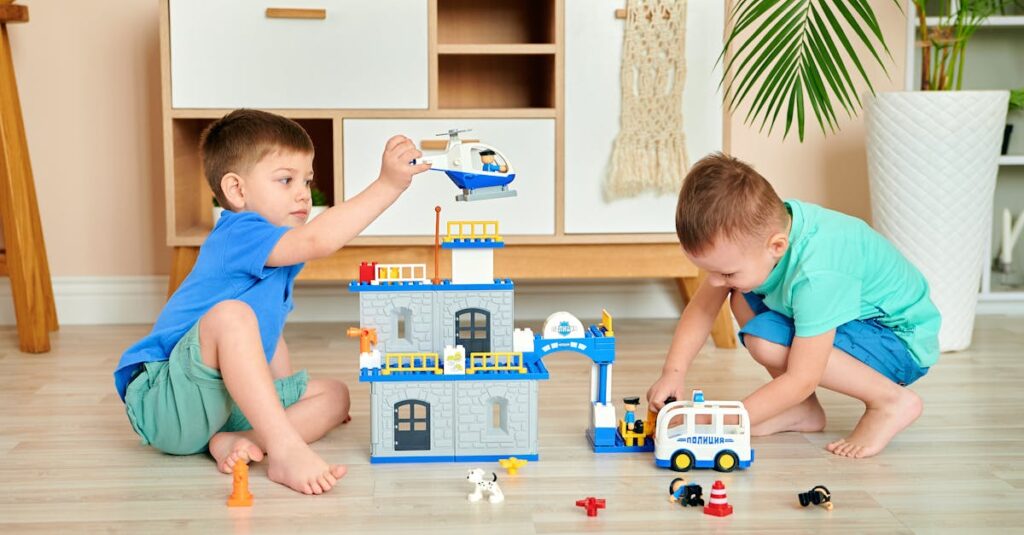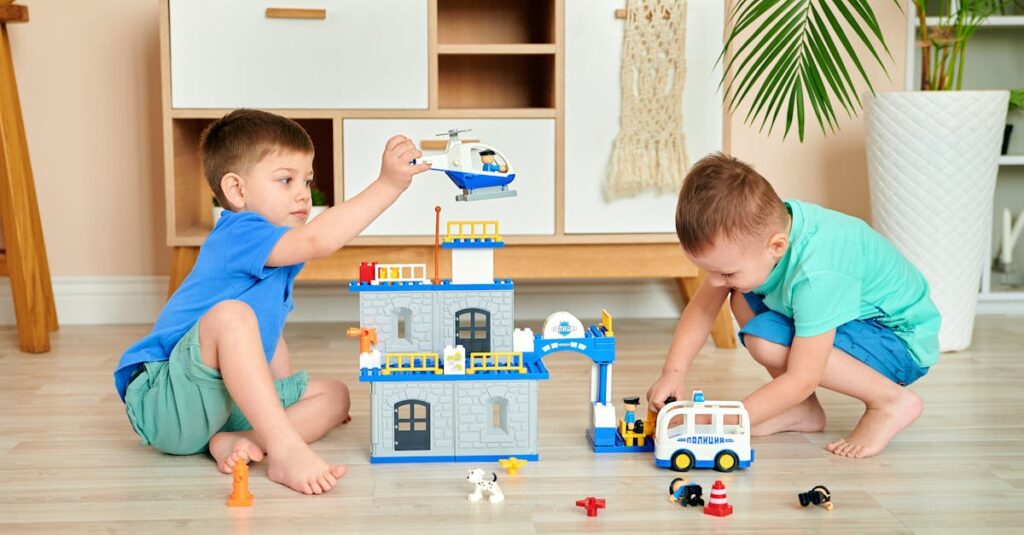Helicopter parenting sounds a bit like a sci-fi horror flick, doesn’t it? Instead of hovering drones, we have well-meaning parents swooping in to solve every problem their children encounter. While the intention might be to protect, this style of parenting can actually create some unexpected consequences. So buckle up, because we’re about to dive deep into how this kind of caregiving affects children in today’s world. From their mental health to social skills, the ramifications are more intricate than you might think.
Table of Contents
ToggleUnderstanding Helicopter Parenting

Helicopter parenting refers to a style of child-rearing where parents are excessively involved in their children’s lives, usually to the point of micromanagement. Imagine a parent watching their child play from the sidelines, ready to step in at the slightest sign of distress, this encapsulates the essence of helicopter parenting. Parents often believe they are helping by shielding their kids from challenges, but this can lead to unintended repercussions. Such involvement can stem from a desire to ensure their child’s success, fueled by societal pressures and their own childhood experiences.
As parents hover, children may get the message that they’re incapable of handling difficulties on their own. While it’s natural to want the best for one’s child, it’s critical to strike a balance between guidance and granting independence.
Psychological Effects On Children
The psychological impact of helicopter parenting can be profound. Children raised under such scrutiny often battle low self-esteem. They may start to doubt their abilities because they aren’t allowed to make mistakes or solve problems independently. Imagine a young adult who can’t decide which job offer to pursue or how to deal with a minor setback, these situations become mountains instead of mere speed bumps.
Research reveals that individuals who experience helicopter parenting are more susceptible to anxiety and depression. Their expectations often hinge on parental approval, leading to a relentless cycle of pleasing others instead of focusing on their own needs. Also, they may struggle with identity formation, unsure of who they are apart from their parents’ accomplishments or ideas.
Academic Achievement and Motivation
When it comes to academics, helicopter parenting can create a double-edged sword. On the one hand, children may excel in school because their parents closely monitor their progress. On the other hand, this involvement can significantly dampen their intrinsic motivation. Why attempt to solve a problem when mom or dad will swoop in and fix it anyway?
As these children reach higher education or the workforce, they might find themselves ill-equipped to face challenges. They lack the skills needed for self-directed learning. Eventually, their academic achievements become less about personal effort and more about parental push. This disconnect can instill a fear of failure that persists long into adulthood, hindering future success.
Social Skills and Relationships
Social skills flourish in environments where children face challenges and navigate peer interactions independently. But, helicopter parenting can stymie this growth. Children raised in such settings often rely on their parents to resolve conflicts or socialize on their behalf. As a result, they may find themselves socially awkward or struggle to form meaningful relationships.
When parents are overly involved, they may inadvertently teach their children that confrontation and conflict resolution are things to be avoided. This belief can manifest in adulthood, leading to difficulties in both professional and personal relationships. Think of the young adult who cannot handle criticism because they’ve always had someone else battling their battles. These experiences underscore the importance of allowing children to engage directly with their peers.
Impact On Mental Health
The prevalence of mental health issues among young adults raised by helicopter parents has increased alarmingly. Stress, anxiety, and depression can loom large, often resulting in a pervasive fear of failure. These issues are compounded by a lack of coping mechanisms developed during childhood. Individuals may feel trapped, classically conditioned to expect parents’ intervention rather than learning to rely on their abilities.
Also, studies suggest a correlation between high levels of parental control and later mental health struggles. Without any sense of agency, these individuals can struggle with decision-making and may feel pressured to conform to expectations, which can be mentally exhausting.
Coping Mechanisms and Development
To combat the challenges posed by helicopter parenting, children can develop alternative coping mechanisms that promote independence. Techniques such as problem-solving skills, resilience training, and fostering self-advocacy are crucial. Parents can encourage this growth by gradually stepping back, allowing children to experience natural consequences. This shift in approach empowers kids to tackle problems head-on, building confidence and adaptability.
Fostering self-efficacy is essential. Encouraging risk-taking in a controlled environment, such as giving them choices or problem-solving tasks, can help children develop crucial life skills. Through this encouragement, parents set the stage for their children to thrive rather than just survive in an ever-demanding world.













